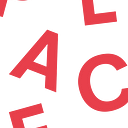Systemic working in Place: How we got here
Authors: Alice Evans and Habiba Nabatu, May 2018
In our blogs and learning, you will hear a lot about the system behaviours. Our insights will reflect on whether these are the best ones for now, if some are more important than others and what they tell us about working in place using a systemic lens.
But how did we get here and how did we choose the system behaviours?
Back in 2013, we published our first theory of change setting out the problem we wanted to solve and the kind of change we wanted to promote. We asked potential grantees, to think about their work in terms of how it will change systems. We also set out our intention to proactively instigate place-based action centred on what we were learning.
We knew that we wanted an ambitious approach to place-based work, one that places the emphasis on working systemically, and that seeks to apply some of the principles that are emerging from our learning.
We didn’t know where to start and how to do it. And we knew that we wanted to co-create a purposeful approach that was discursive, open and collaborative. We talked to a lot of people.
To bring together all our conversation, we asked Toby Lowe from Newcastle University to help us design a collaborative process for bringing people together and capture the collective intelligence and learning.
Over 18 months, we undertook seven strands of work that were the building blocks of our intervention in place.
1. We worked with Toby Lowe to hold a series of discussions with a range of people across England to help us develop a manifesto which sets out the values, principles and behaviours which need to shape place-based systems change (the manifesto would turn into the system behaviours)
2. We commissioned IVAR to do a historical UK and international literature review of statutory and charitable approaches to place
3. We co-funded IVAR to look at how foundations are approaching place-based work across the UK.
4. We supported the Association of Charitable Funders to set up a time-limited interest group for funders interested in place which includes UK, England-wide and Scottish funders and those based in a particular place.
5. We held a series of exploratory one-to-one meetings with other funders, statutory partners and other thinkers.
6. Funded Collaborate, New Local Government Network and CLES to test out different methodologies.
7. Continued to fund voluntary agencies taking place-based approaches such as Civic Systems Lab, North Camden Zone, Wandsworth Community Empowerment Network and Foundation for Families.
We spoke to over 200 people, including people with lived experience, academics, theorists, practitioners, funders, consultants, think tanks and those in the public sector.
This deliberate process of harnessing collective intelligence gave us much more understanding and knowledge than we could have found on our own sitting in our office.
And it was more than that. We were trying to ask different kinds of questions, seeing things differently and coming at this differently. We were creating conditions for good dialogue, bringing together different voices and triangulating insights.
We were creating a process and trusting it even though we didn’t know what would emerge. We were immersing ourselves in uncertainty. We were seeing the world through a systems lens.
This approach, of seeing systems changes as a process and as an outcome led to synthesising our learning into the system behaviours.
We would like to thank all the people who shared their insights and helped to shape this work. We cannot name all of them. Below are just a few of them.
Individuals
David Ford, members of Revolving Doors’ National Service User Forum, Tessy Britton, Zaid Hassan, Indy Johar, Rick Muir, Malik Gul, Charlie Howard, Sophia Looney, Simon Johnson, Sophie Boobis, Nerys Parry, Sonia Khan and the participants on our Systems Changers Programme
Organisations
Young Foundation, Vanguard, Snook, Collaborate, Coventry Law Centre, Brighter Futures, Homeless Link, Early Intervention Foundation, Together for Mental Wellbeing, Barca, User Voice, Bromsgrove and Redditch Council, Monmouthshire Council, Coventry Council, Public Sector Transformation Network, NHS England, Public Health England, Health Watch, Love Barrow Families, New Philanthropy Capital, Locality, West London Zone, Newcastle City Council, Centre of Excellence for Information Sharing, NSPCC, Porticus UK, Welsh Women’s Aid, Women’s Aid, The Collective Partnership Ltd, Social Justice Solutions, The Centre for Welfare Reform, Tameside council, Foundation for Families, Women centre, Calderdale Council, Social Finance, Agenda, Integrate Agency CIC, Grapevine, Hackney Council, Ava project, London Funders, Comic Relief, Big Lottery Fund, JRF, Lloyds Foundation and Save the Children.
